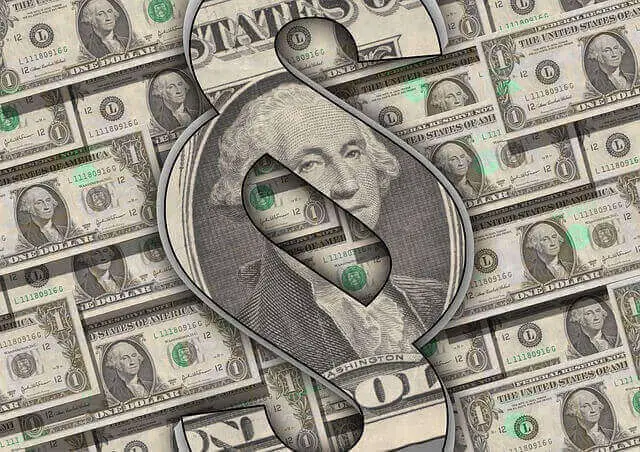Information presented on this web page is intended for informational and educational purposes only and is not meant to be taken as legal, financial, investment or tax advice. We do not accept any responsibility for any trading or investment related losses. Please review our disclaimer on before taking action based upon anything you read or see.
Taking control of finances is an essential step towards achieving life goals and achieving long-awaited security. But for this to become a reality, having financial discipline is a non-negotiable attitude. In practice, this means: learning to organize your finances, take control of your accounts and ensure that you have enough money left at the end of the month to build a financial reserve and invest. Are you prepared for all this? Read on and check out the 12 financial rules you need to live by.
Furthermore, personal financial control helps you know your income, expenses, and improved leftover money.
Personal financial control is the habit of organizing all income and expenses in the period, usually monthly, considering fixed and general expenses. This is an essential habit because many people don’t know how much they earn and how much they spend per month, and this is the main reason for financial loss of control.
Therefore, we will inform you about some financial rules you need to live by in this article. These financial control rules will also change the way you think about money.
The 12 Financial Rules You Need To Live By

There is no good or bad time to start taking the first steps towards financial discipline. But this moment of uncertainty and economic ups and downs can be providential for you to leave your place. Thus, below is a highlight of financial rules you need to live by.
These rules would surely help you to be more financially disciplined and organize your finances without any hassle. Come along!
Know your expenses
The first among is to know your expenses. Here, you need to analyze your checking account and credit card to identify all the inflows and outflows you have each month. And don’t be concerned only with values, but also focus on the categorization of expenses.
Those who are financially disciplined never spend more than they earn. So, if you identify that your income is less than your expenses or even very close, it’s best to take action and turn this game around.
Define priority expenses and extra expenses
After analyzing the inflows and outflows of the account, it is necessary to work by separating your expenses into groups to differentiate priority from superfluous. The first includes essential expenses in your life, such as housing, food, transport, education, etc. In the second, expenses that would not structurally affect your daily life if they were reduced or cut — such as buying clothes, changing a car, or going to a more expensive restaurant.
But remember that being financially disciplined is not about giving up all non-essential expenses. It’s about getting to know them so you know where you can save, should the need arise.
When done at every age, you will discover that at a savings rate of 10%, you will be able to retire around the age of 65. At this savings rate of 10%, you can have enough savings and emergency funds and to live on without financial stress and be able to invest and watch your money grows too.
Cut unnecessary expenses
Once you’ve defined your priority and excessive expenses, it’s time to analyze the budget to identify where you can reduce or cut expenses you don’t need. For example, do you need to keep the Netflix monthly fee even if you’re not watching anything? And eating out every weekend?
If you don’t want to cut the expense, you can consider whether you can at least reduce it. For example, few people pay for an expensive cellular plan to get access to more mobile data.
Sadly, they use this feature very little, as most places they frequent offer Wi-Fi. So achieving financial discipline is a matter of habit. Therefore, review the way you consume and try to make adjustments for the good of your financial life.
Control expenses
In addition to adjusting the budget by cutting or reducing unnecessary expenses, it is necessary to keep expenses under control. In that case, set goals for each expense category. Having a maximum amount you can spend in each area helps you take control of your money and ensure you’re using your income for what matters to you.
Write down everything you spend
Once you’ve set spending targets for each budget category, you need to write down every expense you make to ensure you’re staying within your budget.
It is essential to write down any expense, no matter how small. Together, trimming expenses, such as after-lunch dessert or coffee at the bakery, can have a significant impact on your monthly budget.
It’s essential to keep in mind that you don’t have to do this for a lifetime. A month is enough time to know your main expenses and understand in which categories your money is being used. Over time, spending control will become automatic in your life.
Choose a control method
Once you have a better understanding of your expenses, you can, if you wish, choose a control method that you identify with and that works in your routine. Among the options are:
- Using a financial control application
- Betting on Excel spreadsheets
- Even managing everything in the good old notebook
- Once you form the habit of keeping an eye on your spending, you may not feel the need to write down your expenses but rather reflect on what you’re spending. It’s your choice.
Search for prices
To have more financial discipline, it is also necessary to acquire another vital habit: constantly researching prices before buying anything. The same item can cost up to twice as much depending on where you buy it.
Therefore, always do a quick search on the internet and physical stores before closing the deal. Another way to spend less is to use features such as discount coupons and pay cash to get a rebate on the total amount of your purchase.
Pay attention to your credit card
It’s impossible to talk about financial discipline without mentioning your credit card. After all, when misused, this form of payment becomes one of the great villains of healthy finance.
Anyone struggling to resist impulse purchases should consider leaving their credit card at home or even lowering their limit not to buy more than they should.
Escape from installments
Infinite installments make financial control difficult and can be traps that lead consumers to spend much more than they can. So, whenever possible, avoid installment purchases. The ideal is to know the value of the item or service you would like to buy and save money month by month until you have what you need.
If you can’t wait and need to pay it in installments, ensure that the value of each installment is included in the monthly financial plan and that you have the money to cover this expense.
Invest your money
With finances under control, it’s time to move forward and take an essential step towards financial security: invest your money. To get it right, consider your investor profile and investment objectives and do a lot of research on investing in choosing financial products that suit your needs.
Investing is a way of guaranteeing a financial reserve and not leaving the money stuck in your checking account, running the risk of being used for items that are not so important.
Try to save money automatically
Sometimes, it isn’t easy to control money saving by spending it on coffee before working. This rule entails connecting the auto-transfer to your bank’s savings account. With this, you can save your money automatically. This will also prevent you from spending it without caution. People who benefit from this more usually save over 20% of everything they earn and have always done this since they entered the workforce at 23.
On the other hand, rather than see the same money disappear at the end of every month, build the habit of saving at least 10% of every paycheck you receive. Next, adjust your lifestyle to fit into the remaining 90%.
Learn to deny yourself.
Yes, you may have to give up going to the theater and buying branded things, but all this for the sake of your plans and goals, a stable financial life.
Frequently Asked Questions
What Are the NEW Retirement Rules?
The NEW Retirement Rules entail that the new age which triggers RMDs is 72. This means you can allow your retirement benefits to incur for an extra 1½ years before tapping into them.
Do I need a financial planner?
To create your budget correctly, you would need a financial planner.
What are ETFs?
ETFs ( Exchange-traded funds) are types of investment funds and exchange-traded products. In other words, they are bought and sold daily on stock exchanges.
Can I Retire?
You can retire and start receiving your full benefits when you reach your full retirement age. (Usually 70 years).
What Are Qualified Expenses For A 529 Plan (And What Doesn’t Count)?
Qualified expenses for a 529 Plan usually cover expenses that are related to post-secondary education. This includes:
- Tuition
- Room and Board
- Technology Items
- Books and Supplies
- Student Loan Repayment
What Doesn’t Count here includes:
- Transportation and Travel
- General Electronics and Cell Phone Plans
- Sport and Fitness Club Memberships
- Insurance
Credit Repair Explained: Should You Pay For Help?
Yes. Good credit repair firms can help you take off wrong information from your credit report. This will also help in building your credit score. Many people also love the debt pay down; the rule of thumb formed by JL Collins: If your interest rate stands below 3%, go ahead and make the minimum monthly payments.
Next, proceed and pay off your debt slowly over time. This further works great if your interest rate is between 3-5%, for example, Liz from Chief Mom Officer decided to pay off her entire 15-year mortgage early, at less than 3% interest. This was because the peace of mind of being debt-free was more important to her and her family.
In contrast, if your interest rate is above 5%, Payoff that debt as aggressively as possible.
When You Must Start Taking RMDs
It would help if you started taking RMDs after you reach age 72.
How to Calculate RMDs
To Calculate RMDs, do make use of the following steps:
- Pick out your age range on the IRS Uniform Lifetime Table.
- Locate the “life expectancy factor,” which corresponds to your current age.
- Carry out a division of your retirement account balance of the previous year by your recent life expectancy factor.
Conclusion
In conclusion, acquiring financial discipline is an essential step in changing habits and avoiding behaviors that are harmful to finances, such as wasteful spending and impulsiveness. To this end, these 12 Financial Rules You Need To Live By would be indispensable for you.




